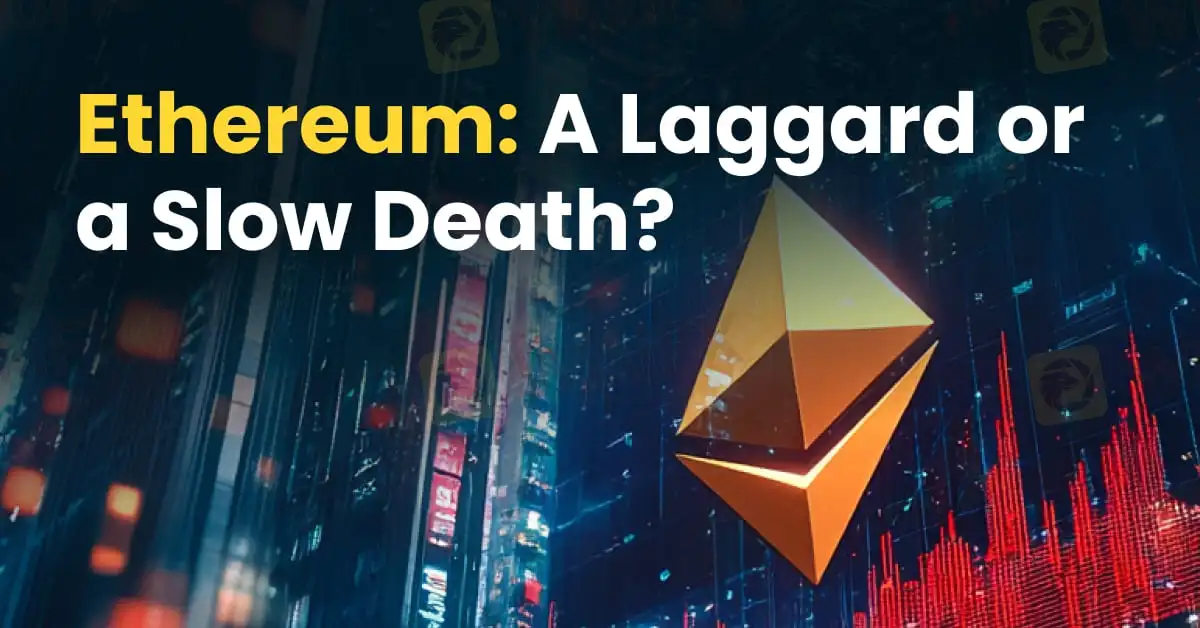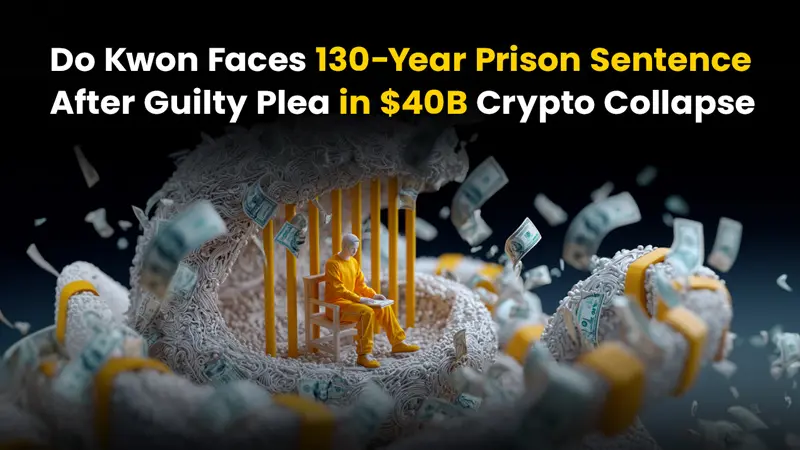简体中文
繁體中文
English
Pусский
日本語
ภาษาไทย
Tiếng Việt
Bahasa Indonesia
Español
हिन्दी
Filippiiniläinen
Français
Deutsch
Português
Türkçe
한국어
العربية
Ethereum: A Laggard or a Slow Death?
Abstract:Ethereum has long been one of the most important projects in the world of cryptocurrency. But according to Charles Hoskinson, founder of Cardano and a former Ethereum co-founder, its future may now be at risk.

Ethereum has long been one of the most important projects in the world of cryptocurrency. But according to Charles Hoskinson, founder of Cardano and a former Ethereum co-founder, its future may now be at risk.
In a recent Q&A on his YouTube channel, Hoskinson said he believes Ethereum may not last another 10 to 15 years. He pointed to both internal issues and growing competition as reasons for concern. His comments have sparked debate in the crypto world, raising important questions about Ethereums ability to adapt.

Hoskinson said Ethereums success may be part of the problem. As the platform has grown, so has its complexity. Many users now rely on “layer-2” networks that are add-ons built on top of Ethereum to improve speed and lower costs. While these networks have helped, they also take value away from the main Ethereum chain. Over time, this could make it harder to hold the ecosystem together.
He also warned that Ethereum is facing strong pressure from the outside. Competitors like Solana and Sui are offering faster, cheaper alternatives. Meanwhile, decentralised finance (DeFi) built on Bitcoin is quickly improving. Hoskinson believes that once Bitcoin DeFi becomes fully active, it could attract more users and money than Ethereum, drawing people away from the platform.
At the heart of Ethereums challenges, Hoskinson sees three key mistakes. First, he believes the project was built on the wrong technology choices, as he claims its accounting model, virtual machine, and consensus system all have serious flaws. These choices were made early on, despite warnings from some in the community.
Second, to fix these issues, Ethereum developers have added complex systems like slashing penalties and more layer-2 solutions. While these changes aim to improve performance, they also create confusion and long-term problems.
Third, Hoskinson said Ethereum lacks a strong on-chain governance model. Without clear systems for making decisions, it becomes harder for the project to move forward in a united way.
Despite his criticisms, Hoskinson still described Ethereum as a brilliant idea. But he compared it to past tech giants like MySpace or BlackBerry, which were once-powerful platforms that lost their lead when better options came along. In his view, Ethereum risks falling into the same trap if it doesnt make big changes soon.
For crypto traders and investors, this raises an important question: can Ethereum keep up with faster-moving rivals, or is it already falling behind? As the industry continues to evolve at a rapid pace, Ethereums next steps will be watched closely, not just by supporters but by the entire crypto world.
Whether it manages to stay on top or fades into the background is a debate that is far from over.
What is your take on this?

Disclaimer:
The views in this article only represent the author's personal views, and do not constitute investment advice on this platform. This platform does not guarantee the accuracy, completeness and timeliness of the information in the article, and will not be liable for any loss caused by the use of or reliance on the information in the article.
Read more

Do Kwon Faces 130-Year Prison Sentence After Guilty Plea in $40B Crypto Collapse
Do Kwon, the South Korean entrepreneur behind one of the largest losses in cryptocurrency history, has pleaded guilty in a U.S. court to two counts of conspiracy to defraud and wire fraud. The charges relate to the 2022 collapse of the TerraUSD and Luna cryptocurrencies, which wiped an estimated $40 billion from the market.

There’s a New Cryptocurrency-Focused Prop Trading Platform?
CoinProp recently launched a proprietary trading platform designed for cryptocurrency markets, providing access to more than 500 digital assets. Will this move reshape prop trading entirely, especially for crypto traders worldwide?

Binance Users Convert Crypto and Withdraw Instantly to Mastercard
Binance now lets users in Europe effortlessly convert crypto and instantly withdraw fiat to Mastercard using the new Buy & Sell service with seamless integration.

Philippine SEC Blocks Unregistered Crypto Exchanges ISPs Nationwide
Philippine SEC enforces new CASP Rules, prompting major ISPs to block access to unregistered crypto exchanges and raising concerns on internet censorship.
WikiFX Broker
Latest News
Join WikiFX’s Agent Growth Event | Turn Your Success into a Global Achievement
Forex Trends Explained for Your Successful Trading Experience
Do Kwon Faces 130-Year Prison Sentence After Guilty Plea in $40B Crypto Collapse
Best 5 Low-Spread FX Brokers in India 2025
Major Pairs in Forex: Top Traded Currency Insights
What is ECN in Trading? A Simple Guide
SEC Settles California Trader with Over $234,000 Spoofing Scheme
What Is Forex Trading Fee? A Beginner’s Guide
Understanding UAE’s Financial Market Regulation: SCA and DFSA
Scam Alert: Know the Risky Side of InstaForex in India
Currency Calculator


